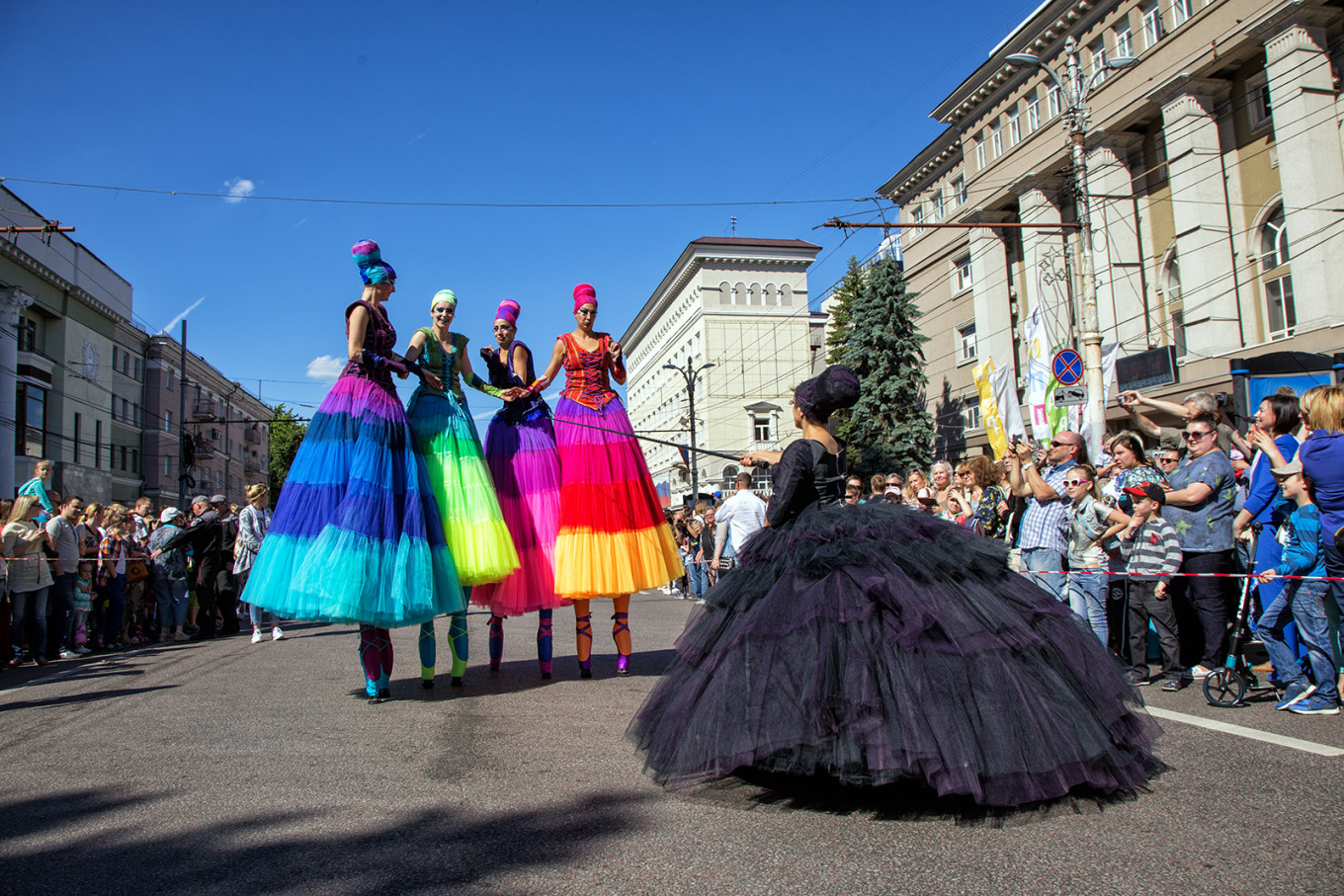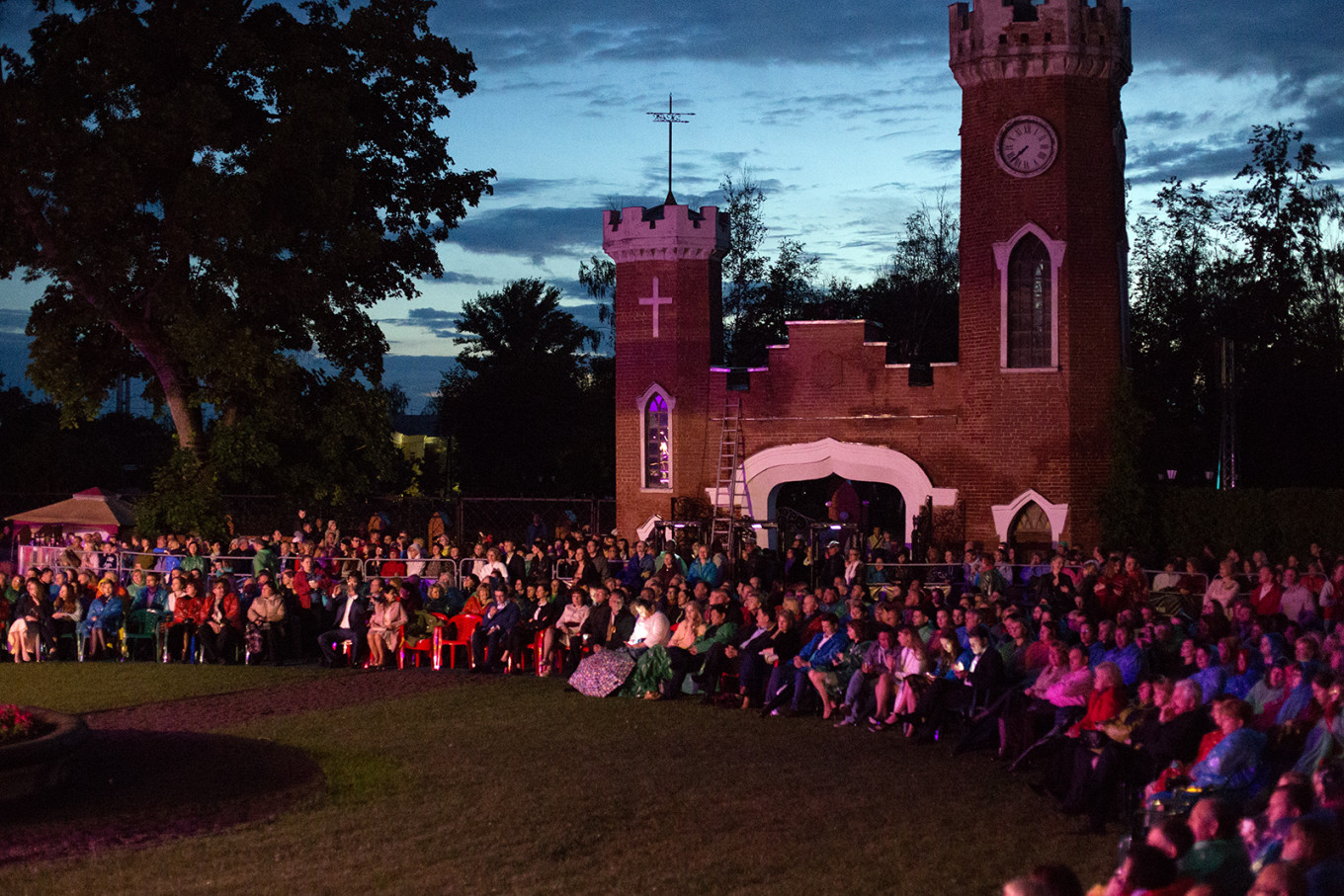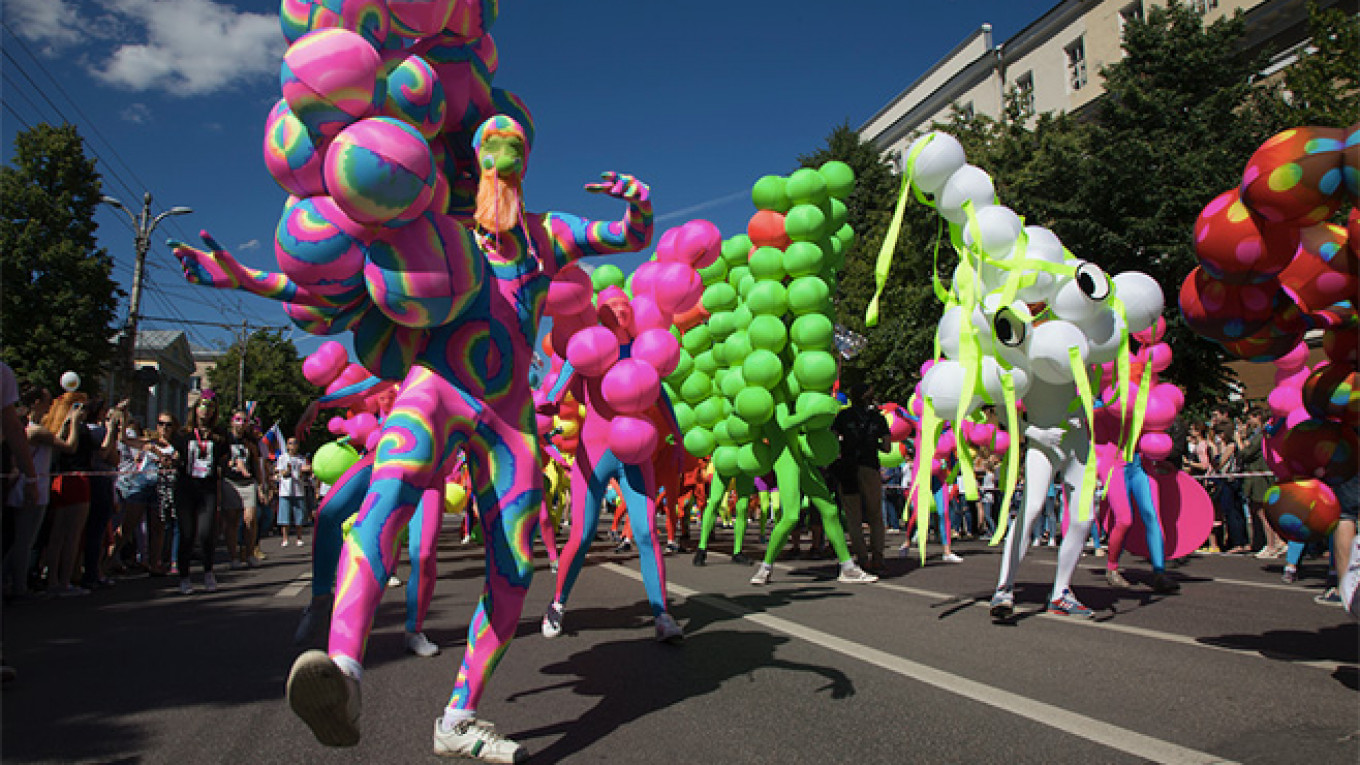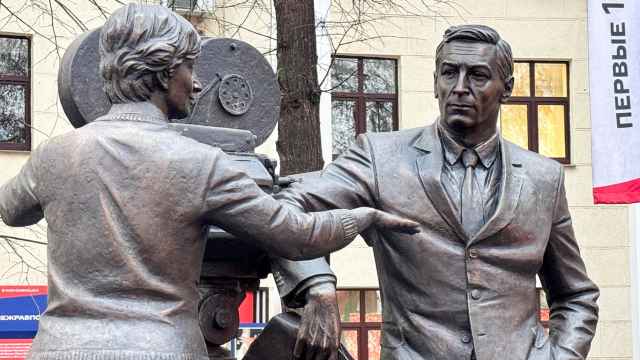This year's International Platonov Arts Festival in Voronezh was attended by 77,000 people. The sprawling 12-day cultural event — now in its sixth year — is redefining the city as one of Russia's most innovative artistic centers. Already four times bigger than its first incarnation in 2011, the Platonov festival is now a significant highlight of Russia's cultural calendar.
Inspired by a Literary Genius
Named after Andrei Platonov — who called Voronezh home for much of his life — the Platonov Arts Festival boasts theater performances, concerts, exhibitions, film screenings and a mammoth book fair on its program. Half of the 23,000 festival tickets sold out within the first three days of of their release this year, and many more people profited from the free cultural program which runs parallel to the festival's ticketed events. Situated around 500 kilometers from Moscow, Voronezh is becoming a burgeoning tourist destination in its own right due to the success of the cultural event.
The festival's namesake, Platonov, struggled to publish much of his work during his lifetime. Famously referred to by Stalin as a "talented writer, but a bastard," Platonov's prose is frequently deemed slow-moving, even sluggish, with little action. But once you get through the Soviet bureaucratic jargon and understand its irony, you can see both the depth of Platonov's ideas and his humanism.
Mikhail Bychkov, the festival's founder and director, told The Moscow Times that the festival "tries to help to save and spread the legacy of Andrei Platonov. We always support projects based on Platonov's works or devoted to him, in every field, from fine arts to theatre, music and even choreographic performances." This year three theater performances at the festival were based on Platonov's works, including a very experimental take on his short story "Fro" by the students of the Moscow Art Theater school. The whole play was stylized as an early Soviet film and featured elements of a clown's performance.
Diverse and Dynamic
The Platonov festival is growing in both popularity and scope. While still not on the scale of overseas biennales such as Edinburgh or Gothenburg, the unique event is an important showcase for the most innovative theatrical and artistic developments in Russia.
Artistic highlights of this year's program included a two-story installation by St. Petersburg artist Alexander Shishkin-Hokusai entitled "The Practices of Growing Up" and the AES+F video installation "Inverso Mundus" — first presented at last year's Venice Biennale. Meanwhile local artists such as Voronezh-based Alexei Bychkov were also given the opportunity to show their work to the public. Bychkov's exhibition was devoted to "Platonov's human," a generalized hero of his fiction presented in a series of photographs accompanied by a special soundtrack.
But it's not all art. The book fair is one of the festival's most popular events. Featuring over 130 independent publishers, visitors have the opportunity to explore and discover rare books such as the fair's hottest selling item — a comic book based on Platonov's short stories.

Local Flavor
The festival is hugely popular with Voronezh residents, who can take part in free cultural events in the city center. The most popular of these is the parade of street theater down Prospekt Revolyutsii, the city's main thoroughfare. This year visitors could enjoy stilt-walkers and acrobats from the Dutch Pavana theater, dragons from the Efimer theater in Spain and a performance named "Bubbles of Hope" from Moscow's Andrei Bartenev.
Natasha Eremeeva, a dedicated festival goer, says that the festival "expands the horizons of Voronezh residents and gives a good incentive for the development of local projects." One of the places that the estival truly transformed is Kommuna, a former print house in the very center of the city. Long slated for demolition, the venue has hosted lectures, concerts and several exhibitions for the second year in a row.
Another venue on the arts program is the Kramskoy Museum, which this year hosted an exhibition of Moscow's nonconformist artists from poet Vsevolod Nekrasov's collection. Contributors included Lydia Masterkova, Oscar Rabin, Vladimir Nemukhin, Oleg Vasiliev, and Erik Bulatov. There was also a solo exhibition from trendy Moscow artist Vladimir Dubossarsky, showcasing his works before and after the split with his artistic collaborator Alexander Vinogradov.

From Provincial Town to Cultural Center
Voronezh has a checkered past. Founded more than 400 hundred years ago, the city was chosen by Peter the Great as the place for a dockyard to build the first ever Russian fleet. During World War II, Voronezh became the site of some of the fiercest battles, resulting in the destruction of more than 90 percent of its buildings.
By the 1950s, much of the city had been rebuilt and repaired and many new machinery and tyre factories were established. One of the "Red Belt" cities of the 1990s — cities where the Communist party polled in first place — Voronezh has since celebrated its 425th anniversary and is now very much a modern metropolis. Indeed given the atmosphere and the calibre of the Platonov festival, you could easily think you were in Moscow or St. Petersburg rather than central Russia.
A festival of such scale, of course, requires quite a bit of funding. "Only 15 percent is funded by the Voronezh Oblast government. The rest comes from ticket sales (25 percent), donations from various businesses (40 percent) and grants from the federal Ministry of Culture or Voronezh City Hall," said Bychkov.
Alena Dubrovina, an employee now on her second festival said her work is "pure madness, a tsunami of impossible tasks and unmanageable deadlines. At one point you are on the verge of losing it, but then suddenly everything is working out and the festival banners are in the city's streets and people are lining up for performances."
This unique cultural event is not only raising the profile of one of Russia's most interesting and interpreted writers, but also further establishing Voronezh as a rich cultural destination for native and international travelers. So if you're looking to experience Russian culture outside of the tourist routes, think: Voronezh.
A Message from The Moscow Times:
Dear readers,
We are facing unprecedented challenges. Russia's Prosecutor General's Office has designated The Moscow Times as an "undesirable" organization, criminalizing our work and putting our staff at risk of prosecution. This follows our earlier unjust labeling as a "foreign agent."
These actions are direct attempts to silence independent journalism in Russia. The authorities claim our work "discredits the decisions of the Russian leadership." We see things differently: we strive to provide accurate, unbiased reporting on Russia.
We, the journalists of The Moscow Times, refuse to be silenced. But to continue our work, we need your help.
Your support, no matter how small, makes a world of difference. If you can, please support us monthly starting from just $2. It's quick to set up, and every contribution makes a significant impact.
By supporting The Moscow Times, you're defending open, independent journalism in the face of repression. Thank you for standing with us.
Remind me later.






